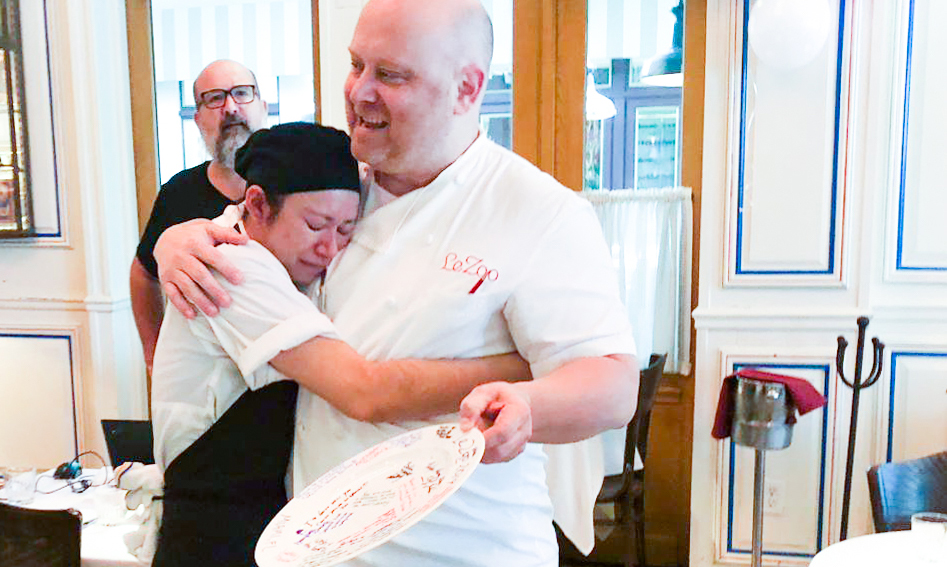A blog series supporting the August theme of The U.S. Bureau of Educational and Cultural Affairs

https://www.linguisticsociety.org/
American English is uniquely and distinctly American. The original English language came over to the North American continent with the early British settlers, but it’s evolved over time. Since the 17th century English colonization of America, the original English language had been greatly influenced by Native Americans, the influx of other European immigrants, and the successive waves of people coming to the United States from other cultures and countries. Each of these populations have contributed to the nuances of American English.
International students who study English abroad may discover that while the Oxford English they learned is the basis for American English, there are many differences and variations. American English dialects have more similarities to one another than the English dialects of different countries. Beyond differences in word use and meaning, grammar and phonetics, there are also noticeable differences in pronunciation and accent. Noah Webster wrote An American Dictionary of the English Language, which defines the many adaptations of British English.
If you consider that America is a cultural melting pot of cultures, it is no wonder that the English spoken here is influenced by many native languages:
- Wigwam and moccasin are words coming from Native Americans
- Déjà vu, chic, chauffeur, mignon are French words
- Kindergarten, bratwurst, hamburger, autobahn are terms borrowed from Germany
- Rodeo, patio, fiesta, aficionado, macho are Spanish in origin
- Cookie is a “loan word” adapted from the Dutch
- Chutzpah, kosher, klutz, spiel, schmaltzy are Yiddish terms
Americans also have a tendency to use nouns as verbs, and though this trend is abhorrent to grammar experts, such usage is slowly being adopted into the official dictionary of American English. For example the noun “incentive” is more commonly used as the verb “incentivize” now. Technology is also introducing the need for new terminology and the list of new words arising from new technology is exhaustive. If you want to see a list of terms, just “Google” it!
New slang words from pop culture and rap music are being incorporated into Americans every day vernacular. It’s another interesting phenomena and “sus” language for sure.
United States Presidents, notably George W. Bush and Donald Trump, are credited with creating new words. This is a documented fact and is not “fake news.”
The use of smart phones has dumbed down, or at least abbreviated, common terms and phrases. LMK what u r thinking about this propensity to shorten words and phrases. LOL!
Then there are different words used in British and American English for the same thing. French fries in America are chips in England while chips in America, are crisps in England! A biscuit in England is a cookie in America, and a biscuit here is a rather bland disk of dense bread. The Dutch cookie is preferable to both.
These examples of different word meaning could surprise a plate and a palate (not to be confused with the other “palette,” derived from French, pronounced the same but with a different meaning!)

The matter of regional accents and colloquialisms further compounds the challenge of understanding American English.
“You guys” or “Youse” is a common term used in New York and New Jersey for “you.”
“Y’all” is a term frequently used in the American South for “you.”
Americans from Boston use the term “wicked” as a superlative rather than a term used to connote something evil.
Sheesh!
The matter of regional accents presents issues even among Americans. Imagine how perplexing it can be to a foreign visitor! People from the North and South are divided by more than the Mason Dixon line. Slow Southern drawls and quick Yankee clips are worlds apart in the way they sound. Americans from different regions can barely understand one another. Internationals trying to learn to speak English in America can be thrown off by the distinctly different accents, in a quandary as to which one to emulate or imitate. And don’t ask an American which is preferable, because if there are 11 different documented American accents, they’ll be likely as many answers.
American English is a language distinctive to North America and arises, like the great nation, from the influences of many other countries. In short, the language of American is as inclusive, distinctive and diverse as its citizens.
American English honors its British roots, and all the other countries and cultures that have made it distinctively its own unique language.






Leave A Comment
You must be logged in to post a comment.